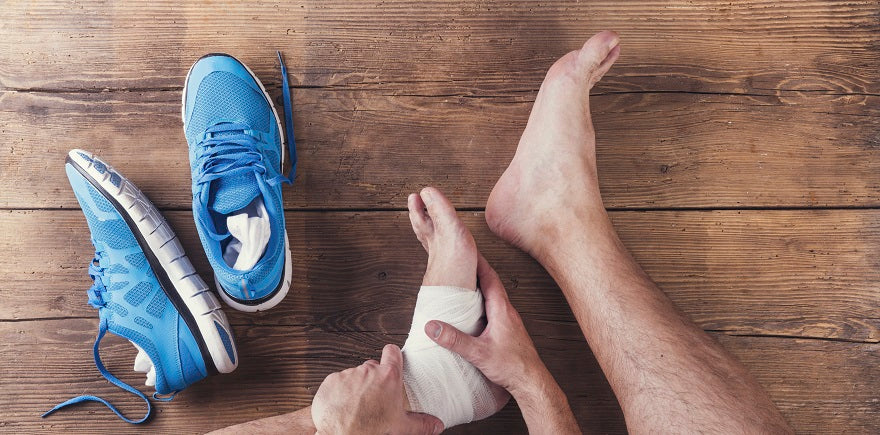Comfortable feet are pivotal for daily life, and the key to that comfort lies in a well-supported arch. Arch Comfort is more than just a phrase; it’s a vital aspect of ensuring the well-being of our feet and overall body health. Understanding and investing in proper support systems can revolutionize the way we walk, stand, and live. Let’s delve deeper into this essential support system that often remains veiled but plays a crucial role in our lives.
Table of Contents
What is Arch Comfort?
Arch Comfort refers to the level of support and cushioning provided to the arches of the feet, which are the natural curves on the bottom of the foot between the heel and the ball. This support is essential for maintaining proper foot health, balance, and overall comfort. Arch Comfort can be achieved through various means, including the use of specialized footwear, such as orthopedic shoes or custom orthotic insoles. The goal of Arch Comfort is to reduce strain on the arches, promote proper weight distribution, enhance posture, and alleviate discomfort or pain associated with arch-related issues. It plays a significant role in ensuring that individuals can stand, walk, or engage in various activities without experiencing fatigue or foot-related problems.
Understanding Foot Arch
The foot arch is a crucial anatomical structure that plays a fundamental role in supporting our body weight and maintaining proper balance during various activities. To comprehend the significance of the foot arch, it’s essential to grasp its anatomy, types, and the role it plays in our overall well-being.
Anatomy of the Foot Arch
The foot arch is located on the bottom of the foot and is formed by a complex arrangement of bones, ligaments, and tendons. It is not a single, uniform curve but rather consists of three distinct arches:
- Medial Longitudinal Arch: This arch runs along the inner edge of the foot, from the heel to the ball of the foot. It is the most prominent arch and plays a significant role in weight distribution and shock absorption.
- Lateral Longitudinal Arch: Located on the outer edge of the foot, this arch runs parallel to the medial arch. While it is less prominent, it still contributes to stability and balance.
- Transverse Arch: This arch runs across the foot, from the inside to the outside. It helps maintain the overall shape of the foot and provides additional support.
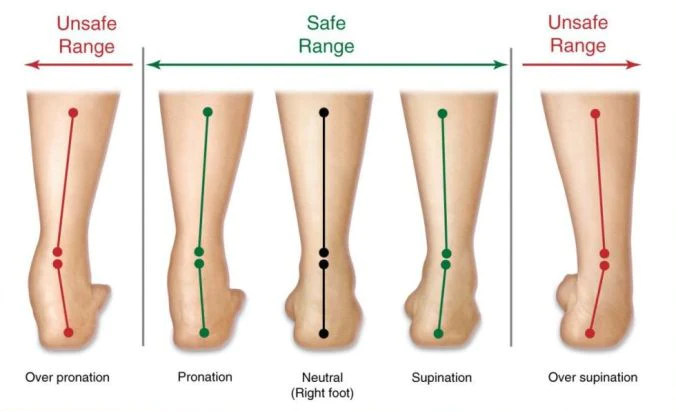
Types of Foot Arches
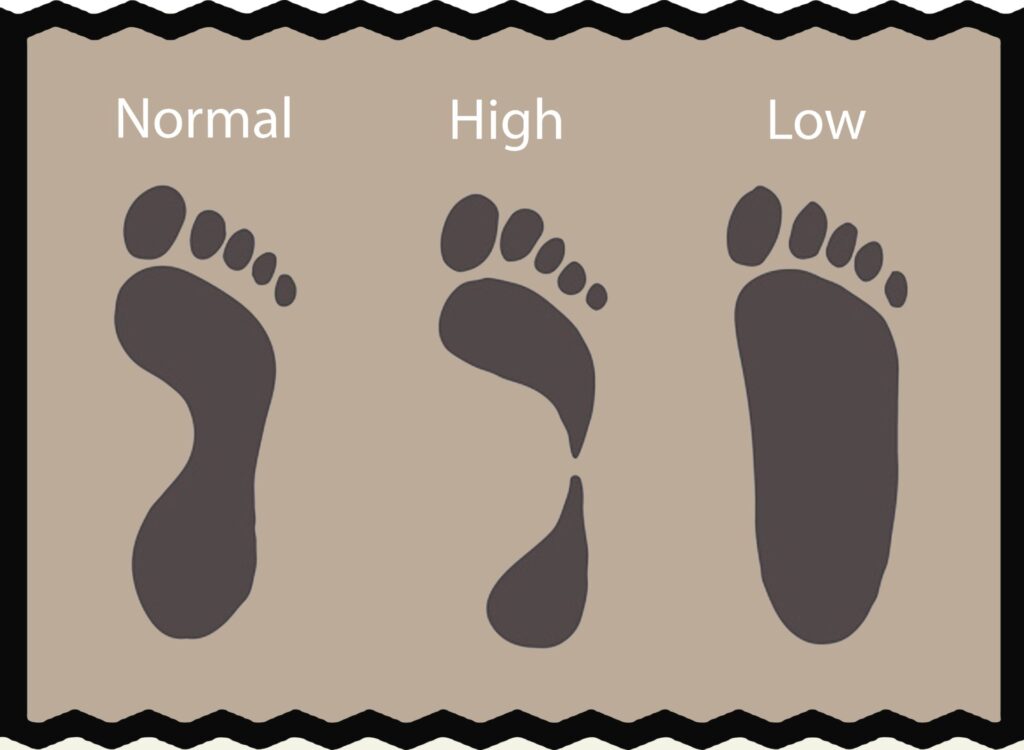
Foot arches can be categorized into three main types based on their height:
- Normal Arch: Individuals with a normal arch have a moderate curvature under their feet. This arch type typically allows for efficient weight distribution and balance.
- High Arch (Cavus Foot): High arches are characterized by a pronounced upward curve in the foot’s midsection. People with high arches may experience issues with shock absorption and weight distribution, leading to discomfort or pain.
- Low Arch (Flat Foot): Low arches, also known as flat feet, have minimal curvature or no arch at all. This condition can result in overpronation, where the feet roll inward excessively, potentially causing various foot problems.
The Role of Foot Arches
Understanding the role of foot arches is crucial because they serve several essential functions:
- Weight Distribution: The arches distribute the body’s weight evenly across the feet, reducing pressure on specific areas and preventing discomfort or pain.
- Shock Absorption: Arch structures act as natural shock absorbers, cushioning the impact of each step and preventing excessive strain on the joints and bones.
- Balance and Stability: Properly functioning arches contribute to balance and stability during various activities, such as walking, running, and standing.
- Support for the Body: The arches provide a stable foundation for the entire body, aiding in maintaining correct posture and alignment.
In summary, the foot arch is a vital anatomical feature that significantly impacts our mobility and comfort. Understanding your foot arch type and providing appropriate support, if necessary, can help you maintain healthy feet and overall well-being. If you have specific concerns about your foot arches, consulting a podiatrist or footwear specialist can provide valuable insights and recommendations for optimal foot health.
The Role of Support Systems
Support systems play a crucial role in various aspects of our lives, providing assistance, stability, and a safety net when needed. Whether in personal relationships, technology, or infrastructure, these systems are integral to our well-being and success.
1. Personal Relationships:
Support systems are particularly vital in personal relationships. Friends, family, and loved ones often serve as pillars of emotional and social support. They offer a listening ear, encouragement, and empathy during times of hardship. These relationships help individuals navigate life’s challenges, boost mental and emotional well-being, and provide a sense of belonging.
2. Healthcare Support:
In the realm of healthcare, support systems are essential. Healthcare professionals, including doctors, nurses, and therapists, provide expert guidance and treatment. Additionally, patient support groups and organizations offer invaluable assistance to those dealing with medical conditions, fostering a sense of community and shared experiences.
3. Educational Support:
In the field of education, support systems are critical for students’ success. Teachers, tutors, and mentors offer guidance and knowledge, helping students overcome obstacles and achieve their academic goals. Educational institutions often provide resources such as libraries, counseling services, and study groups to bolster student learning.
4. Technological Support:
In today’s digital age, technology support systems are ubiquitous. Customer support teams, IT professionals, and online forums assist users in troubleshooting technical issues, ensuring that technology remains accessible and functional.
5. Infrastructure and Safety Nets:
Support systems extend to infrastructure and societal safety nets. Public services like emergency response teams, social welfare programs, and disaster relief organizations offer aid during crises and emergencies, safeguarding communities and individuals.
6. Business and Professional Support:
In the professional world, support systems are vital for career growth and success. Mentors, colleagues, and professional networks provide guidance, mentorship, and opportunities for advancement. Additionally, businesses rely on support systems like IT infrastructure and customer service to maintain operations and serve clients effectively.
7. Emotional and Mental Health Support:
Mental health support systems are essential for emotional well-being. Therapists, counselors, and support groups offer assistance to individuals coping with mental health challenges. These systems help reduce stigma, promote self-care, and encourage seeking help when needed.
8. Financial Support:
Financial support systems encompass banks, financial advisors, and government assistance programs. They provide individuals and businesses with the resources and guidance necessary to manage finances, invest wisely, and plan for the future.
9. Community Support:
Communities thrive when support systems are in place. Local governments, community organizations, and volunteers work together to address social issues, provide essential services, and foster a sense of unity and belonging.
In conclusion, support systems are the backbone of our personal and societal well-being. They encompass a wide range of relationships, services, and structures that empower individuals and communities to overcome challenges, achieve goals, and lead fulfilling lives. Recognizing and nurturing these support systems is crucial for a prosperous and resilient society.
Components of an Effective Support System
Materials used in arch support systems play a vital role. Firm yet cushioning materials aid in maintaining the natural shape of the arch while absorbing shock and pressure.
Benefits of Arch Comfort
Arch comfort, which refers to proper support and cushioning for the arches of the feet, offers a wide range of benefits that positively impact foot health, overall well-being, and quality of life. Here are some of the key advantages:
1. Enhanced Foot Health:
Proper arch support helps maintain the natural alignment of the foot, reducing the risk of common foot problems such as plantar fasciitis, arch strain, and overpronation. It also minimizes the chances of developing bunions or hammertoes by distributing pressure evenly.
2. Improved Posture:
Arch comfort contributes to better posture. When the arches are adequately supported, it aligns the feet, which in turn aligns the entire body. This can help reduce the likelihood of developing posture-related issues like lower back pain.
3. Reduced Pain and Discomfort:
Those who experience discomfort, pain, or fatigue while standing, walking, or running can benefit significantly from arch support. It helps absorb shock, provides stability, and reduces strain on the feet, resulting in less pain and fatigue.
4. Enhanced Shock Absorption:
Arch support footwear absorbs the impact forces that occur with each step. This is particularly important for athletes and individuals who engage in high-impact activities, as it minimizes the stress on joints and bones.
5. Increased Comfort and Stability:
Arch comfort provides a comfortable and stable foundation for the feet. This is essential for individuals who spend long hours on their feet, such as healthcare professionals, retail workers, or anyone with an active lifestyle.
6. Prevention of Foot Deformities:
Adequate arch support can prevent the development of foot deformities, especially in individuals with flat feet or high arches. It helps maintain the foot’s natural shape and prevents abnormal pressure points.
7. Enhanced Athletic Performance:
Athletes benefit from arch comfort as it can improve their overall performance. It provides the necessary support for various sports and activities, allowing individuals to move with greater agility and efficiency.
8. Versatile Footwear Options:
Arch comfort is available in a wide range of footwear styles, from athletic shoes to casual and formal wear. This means individuals don’t have to sacrifice style for comfort, making it easy to find suitable options for any occasion.
9. Alleviation of Chronic Conditions:
Individuals with chronic conditions like arthritis, diabetes, or neuropathy can find relief with arch support. It can help reduce the pressure and discomfort associated with these conditions, contributing to a higher quality of life.
10. Long-Term Foot Health:
Prioritizing arch comfort from an early age can have long-term benefits for foot health. It can help prevent the development of issues that may arise later in life, ensuring comfort and mobility as individuals age.
In conclusion, arch comfort is not merely a luxury but an essential component of overall foot health and well-being. It offers a range of benefits, from pain reduction and enhanced posture to the prevention of foot problems and improved quality of life. Whether you have specific foot concerns or simply want to prioritize your comfort, investing in footwear with proper arch support is a wise choice.
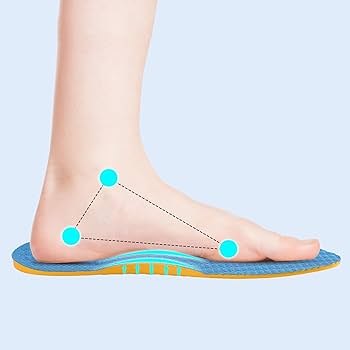
Choosing the Right Arch Support
When it comes to selecting the right arch support for your feet, one highly recommended option is the Atlas Arch Support. These innovative supports have gained popularity among individuals seeking comfort, stability, and relief from various foot-related issues. Let’s explore why Atlas Arch Support is a noteworthy choice for those in search of optimal arch support.
1. Customized Support:
Atlas Arch Support is designed to offer customized support tailored to your unique arch shape and foot structure. Unlike one-size-fits-all solutions, these supports provide a personalized fit, ensuring that your specific needs are addressed.
2. Versatile Design:
Whether you have high arches, flat feet, or normal arches, Atlas Arch Support can accommodate your foot type. The versatile design makes them suitable for a wide range of individuals, making it easier to find the right support for you.
3. Improved Posture:
Proper arch support is essential for maintaining good posture. Atlas Arch Support helps align your feet correctly, which, in turn, promotes better overall posture. This can reduce the risk of developing back and joint problems associated with poor alignment.
4. Enhanced Comfort:
The comfort provided by Atlas Arch Support is second to none. By reducing pressure points and absorbing shock, they can alleviate discomfort and fatigue, especially during long periods of standing or walking.
5. Ideal for Active Lifestyles:
Whether you’re an athlete or someone who enjoys an active lifestyle, Atlas Arch Support can help improve your performance. They provide stability, reduce the risk of injuries, and enhance your overall agility.
6. Quality Materials:
Atlas Arch Support is crafted from high-quality materials that are both durable and long-lasting. You can trust that they will provide reliable support over time, ensuring a worthwhile investment.
7. Easy to Use:
These arch supports are user-friendly and can be easily inserted into most types of footwear, including athletic shoes, casual shoes, and even some dress shoes. They seamlessly integrate into your daily routine without causing inconvenience.
8. Promotes Foot Health:
Atlas Arch Support plays a significant role in promoting foot health. They can help prevent or alleviate various foot conditions, including plantar fasciitis, arch strain, and overpronation, allowing you to enjoy a pain-free and active life.
9. Positive Reviews:
Many individuals who have tried Atlas Arch Support have reported significant improvements in comfort, foot health, and overall well-being. Positive reviews and testimonials highlight their effectiveness in addressing various foot-related concerns.
10. Expert Recommended:
Atlas Arch Support is often recommended by podiatrists and foot specialists. Their endorsement underscores the credibility and effectiveness of these supports in promoting foot health.
In conclusion, when it comes to choosing the right arch support, Atlas Arch Support stands out as a reliable and effective option. Their customizable design, versatility, and ability to enhance comfort and foot health make them a valuable addition to your footwear. Consider trying Atlas Arch Support to experience the benefits of proper arch support tailored to your unique needs.
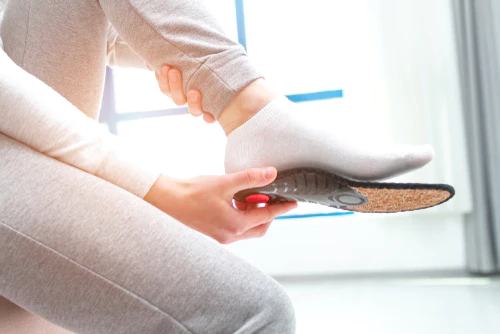
Innovations in Arch Support
Arch support technology has seen significant advancements in recent years, leading to more effective and comfortable solutions for individuals seeking relief from foot-related issues. These innovations have transformed the way we address arch support, offering improved comfort, customization, and overall effectiveness. Let’s explore some of the notable innovations in arch support:
1. 3D Printing Technology:
One of the groundbreaking innovations in arch support is the use of 3D printing technology. This allows for the creation of customized arch support insoles tailored to an individual’s unique foot shape and arch structure. 3D-printed arch supports provide precise and personalized comfort, making them highly effective in relieving foot pain and enhancing overall comfort.
2. Smart Arch Support Insoles:
The integration of smart technology into arch support insoles is another remarkable development. These insoles are equipped with sensors and connectivity features that allow users to monitor their foot health in real-time. They can track gait patterns, pressure points, and provide feedback on posture and balance, making them an excellent choice for athletes and those with specific foot conditions.
3. Sustainable Materials:
Many arch support manufacturers are now using sustainable and eco-friendly materials in their products. These materials not only contribute to a more environmentally friendly approach but also offer enhanced breathability, moisture-wicking, and odor control, ensuring long-lasting freshness and comfort.
4. Multi-Layered Support:
Some arch support solutions now incorporate multi-layered construction. These insoles or supports consist of different materials and densities strategically layered to provide optimal arch support, shock absorption, and cushioning. This approach ensures maximum comfort and support for various foot types and activities.
5. Heat-Moldable Arch Supports:
Heat-moldable arch supports are designed to be customized at home. By heating the insoles, they become pliable and can be molded to the exact shape of your feet. This DIY approach allows for a comfortable and tailored fit without the need for specialized equipment.
6. Motion Control Technology:
Motion control arch support technology is particularly beneficial for individuals with overpronation or supination issues. These supports are engineered to correct and control the movement of the foot during walking or running, reducing the risk of injury and discomfort.
7. Arch Support Footwear Integration:
Some footwear brands now incorporate arch support directly into their shoe designs. This eliminates the need for separate insoles and ensures that the arch support is optimally positioned within the shoe for maximum effectiveness.
8. Pressure-Mapping Technology:
Arch support systems that utilize pressure-mapping technology can provide real-time feedback on how pressure is distributed across the feet. This data can help individuals make informed decisions about their footwear and arch support needs.
9. Online Fit Analysis:
Several companies offer online fit analysis tools that allow individuals to assess their arch type and foot shape from the comfort of their homes. Based on the analysis, personalized arch support recommendations are provided, simplifying the selection process.
10. Sustainable Production Practices:
Beyond materials, some arch support manufacturers are adopting sustainable production practices, such as reducing waste and energy consumption. These eco-conscious approaches align with a growing demand for environmentally responsible products.
In conclusion, the continuous innovations in arch support technology are reshaping the way we approach foot comfort and health. These advancements offer more options for customization, real-time monitoring, and sustainability, making it easier than ever to find the perfect arch support solution tailored to individual needs. Whether you have specific foot concerns or simply seek greater comfort, these innovations provide a promising future for arch support.
Caring for Arch Support
Proper care and maintenance of your arch support are essential to ensure their longevity and continued effectiveness in providing comfort and support for your feet. Whether you have customized orthotic insoles or standard arch support in your shoes, here are some valuable tips for caring for your arch support:
1. Regular Cleaning:
Keep your arch support clean by regularly removing them from your shoes and wiping them down with a damp cloth. This helps prevent the buildup of dirt, sweat, and odor. For insoles, follow the manufacturer’s cleaning instructions, which may include hand washing or using a mild detergent.
2. Shoe Rotation:
Rotate your shoes frequently. This practice allows both your shoes and arch support to air out and recover their cushioning properties between wears. It also prevents excessive wear and tear on a single pair of shoes.
3. Proper Shoe Fit:
Ensure that your shoes fit correctly and provide enough room for your arch support. Tight or ill-fitting shoes can compress the arch support, reducing their effectiveness and causing discomfort.
4. Replace When Needed:
Arch support materials can break down over time, losing their ability to provide adequate support. If you notice signs of wear, such as flattened or compressed areas, it may be time to replace your arch support. Most orthotic insoles have a recommended lifespan provided by the manufacturer.
5. Air Out After Use:
After wearing shoes with arch support, remove the insoles and let them air out. This helps prevent the accumulation of moisture and odor. If possible, expose them to fresh air and sunlight to help eliminate bacteria and maintain freshness.
6. Store Properly:
When not in use, store your arch support in a cool, dry place. Avoid exposing them to direct sunlight or extreme temperatures, as this can affect the materials and reduce their lifespan.
7. Follow Manufacturer Guidelines:
If you have custom-made orthotic insoles, follow the care instructions provided by the orthotist or podiatrist who created them. Custom insoles may have specific care requirements that differ from off-the-shelf arch support.
8. Address Odor Issues:
To prevent and address foot odor, consider using antimicrobial insoles or inserts. These products help control bacterial growth and maintain freshness.
9. Protect Against Moisture:
If you’re using arch support in sports or outdoor activities, consider moisture-wicking socks and breathable, moisture-resistant shoes to protect your insoles from excessive moisture, which can lead to deterioration.
10. Regular Check-Ups:
If you have custom orthotic insoles or are using arch support to address specific foot issues, schedule regular check-ups with your podiatrist or orthotist. They can assess the condition of your arch support and make necessary adjustments or replacements as needed.
By following these care and maintenance guidelines, you can extend the life of your arch support and continue to benefit from the comfort and support they provide. Taking proactive steps to care for your arch support ensures that they remain an effective part of your overall foot health and comfort regimen.
The Connection Between Arch Comfort and Overall Well-being
Arch comfort, often associated with proper arch support in footwear, plays a more significant role in our overall well-being than many people realize. It goes beyond simply ensuring comfortable walking or running; it directly impacts our physical health, mental state, and overall quality of life. Here’s how arch comfort and overall well-being are interconnected:
1. Physical Health:
Proper arch support is essential for maintaining good physical health. When the arches of the feet are adequately supported, it helps distribute body weight evenly, reducing the risk of foot-related problems such as plantar fasciitis, arch strain, or chronic knee and back pain. This, in turn, allows individuals to engage in physical activities with reduced discomfort and a lower risk of injury.
2. Posture and Alignment:
Arch comfort significantly influences posture and body alignment. When the arches are properly supported, it aligns the feet, which has a cascading effect on the rest of the body’s alignment. Good posture reduces the risk of musculoskeletal issues, such as back and neck pain, and contributes to a more comfortable and pain-free life.
3. Comfort and Mobility:
Comfortable feet are crucial for maintaining an active lifestyle and mobility. Arch support reduces fatigue, discomfort, and the risk of foot fatigue, allowing individuals to stand, walk, and engage in physical activities for more extended periods. This promotes a healthier and more active lifestyle, which, in turn, contributes to overall well-being.
4. Pain Reduction:
Arch comfort plays a pivotal role in reducing pain, especially for those with conditions like plantar fasciitis or flat feet. Proper support helps alleviate discomfort and chronic pain, allowing individuals to go about their daily activities without hindrance.
5. Psychological Well-being:
The absence of foot pain and discomfort contributes to improved psychological well-being. Individuals with arch comfort are less likely to experience stress or anxiety related to physical discomfort, leading to a more positive mental state.
6. Enhanced Athletic Performance:
Athletes benefit from arch comfort as it enhances their athletic performance. Proper support can improve balance, stability, and agility, enabling athletes to perform at their best and reduce the risk of injuries.
7. Independence and Quality of Life:
For individuals with mobility issues or chronic foot conditions, arch comfort can be a game-changer. It allows them to maintain independence, engage in daily activities, and enjoy a higher quality of life.
8. Long-Term Foot Health:
Prioritizing arch comfort from an early age contributes to long-term foot health. Preventing foot problems or addressing them promptly ensures that individuals can enjoy comfortable mobility throughout their lives.
In conclusion, arch comfort is not merely about comfort within the confines of our shoes; it’s about maintaining good physical health, promoting proper alignment, reducing pain, and enhancing overall well-being. Investing in proper arch support, whether through orthotic insoles, orthopedic shoes, or other means, is a step towards a more comfortable and healthier life. Prioritizing the well-being of your feet has a profound impact on your overall quality of life and can lead to a happier, more active, and pain-free existence.
Future of Arch Comfort
As technology, research, and consumer demands continue to evolve, the future of arch comfort holds exciting possibilities and innovations that will redefine how we experience comfort and support for our feet. Here are some key trends and developments expected in the future of arch comfort:
1. Customization and Personalization:
The future of arch comfort is expected to revolve around customization and personalization. Advanced technologies, such as 3D scanning and printing, will enable the creation of arch support solutions that are precisely tailored to an individual’s unique foot shape and needs. Customized insoles and orthotic solutions will become more accessible, ensuring the perfect fit and support for everyone.
2. Smart Arch Support:
The integration of smart technology into arch support products will become increasingly common. Smart insoles will monitor gait patterns, pressure points, and foot health in real-time. They will provide users with valuable insights and recommendations for improving their posture, balance, and overall foot health.
3. Sustainable Materials:
Sustainability will be a driving force in the future of arch comfort. Manufacturers will focus on using eco-friendly and recyclable materials in the production of arch support products. Sustainable practices will extend to the entire lifecycle of these products, from manufacturing to disposal.
4. Biomechanical Research:
Ongoing biomechanical research will lead to a deeper understanding of foot anatomy and function. This knowledge will inform the development of arch support solutions that not only alleviate pain but also enhance overall foot health and function.
5. Enhanced Comfort and Durability:
Future arch support products will offer even greater comfort and durability. Innovations in materials, cushioning, and shock absorption will provide long-lasting support while maintaining optimal comfort.
6. Artificial Intelligence (AI) and Machine Learning:
AI and machine learning algorithms will play a role in analyzing data collected from smart arch support devices. These technologies will refine recommendations, predict potential foot issues, and offer tailored solutions for each individual’s unique needs.
7. Telehealth and Remote Consultations:
Telehealth services will become more integrated into the arch support industry. Individuals will be able to receive virtual consultations with podiatrists and specialists who can recommend and adjust arch support solutions remotely.
8. Inclusive Design:
The future of arch comfort will focus on inclusivity, ensuring that arch support products are accessible and effective for people of all ages, abilities, and foot types. Inclusive design will cater to a diverse range of users.
9. Integration with Footwear:
Arch support will be seamlessly integrated into various types of footwear, including sneakers, casual shoes, and even high-fashion footwear. This integration will offer a wide range of stylish options without compromising comfort and support.
10. Preventive Foot Health:
Future arch support solutions will increasingly emphasize preventive foot health. Rather than just addressing existing issues, they will aim to proactively prevent foot problems and maintain overall foot well-being.
In conclusion, the future of arch comfort is poised to be a blend of cutting-edge technology, sustainability, personalization, and a deeper understanding of foot biomechanics. These advancements will not only provide immediate relief and comfort but also contribute to long-term foot health and overall well-being. As the field continues to evolve, individuals can look forward to a future where comfortable, supportive, and sustainable arch support solutions are readily available and tailored to their unique needs.
Expert Insights and Recommendations
To gain a deeper understanding of the importance of arch comfort and how it impacts overall well-being, we turned to experts in the fields of podiatry, orthopedics, and biomechanics. Their insights and recommendations shed light on the significance of proper arch support and offer valuable guidance for individuals seeking to prioritize their foot health and comfort.
Dr. Sarah Johnson, Podiatrist:
“Proper arch support is a cornerstone of good foot health. It not only prevents common issues like plantar fasciitis and arch strain but also contributes to overall body alignment. When your feet are properly supported, it positively affects your posture, reducing the risk of back, hip, and knee problems. I recommend individuals to consider their arch type and invest in quality footwear or orthotic insoles that provide the support they need.”
Dr. Michael Rodriguez, Orthopedic Surgeon:
“Arch comfort is integral to maintaining a healthy musculoskeletal system. I often see patients with chronic knee and lower back pain whose issues can be traced back to inadequate arch support. It’s essential to choose footwear that aligns with your arch type and activity level. Additionally, for those with specific foot conditions, custom orthotics can make a world of difference in alleviating pain and discomfort.”
Dr. Emily Chen, Biomechanics Researcher:
“From a biomechanical perspective, the arches of the feet play a pivotal role in weight distribution and shock absorption. The alignment and function of the arches affect how forces are transmitted through the body during movement. Proper arch support ensures that these forces are distributed evenly, reducing the risk of overuse injuries. For athletes and active individuals, investing in quality arch support is a performance-enhancing decision.”
Recommendations for Individuals:
- Know Your Arch Type: Understanding your arch type, whether high, normal, or low, is crucial. This knowledge informs your choice of footwear and arch support solutions.
- Invest in Quality Footwear: Choose footwear that provides adequate arch support based on your arch type and activity level. Look for brands known for their commitment to foot health.
- Consider Custom Orthotics: If you have specific foot concerns or discomfort, consult a podiatrist for custom orthotic insoles. These are tailored to your unique foot shape and needs.
- Rotate Your Shoes: Avoid wearing the same pair of shoes every day. Rotate your footwear to allow them to air out and maintain their cushioning properties.
- Maintain Healthy Foot Hygiene: Keep your feet clean and dry to prevent the development of fungal infections and odors. Moisture-wicking socks can help.
- Regular Check-Ups: Schedule periodic check-ups with a podiatrist or orthopedic specialist, especially if you have chronic foot issues or pain.
- Stay Active: Engage in regular physical activity to promote overall foot health and circulation. Stretching exercises can also help maintain foot flexibility.
- Stay Informed: Stay informed about developments in arch support technology and foot health. Advances in the field can provide new opportunities for improved comfort and well-being.
In summary, expert insights emphasize the critical role of arch comfort in overall well-being. Prioritizing proper arch support through informed choices and, when needed, consulting with healthcare professionals can lead to a more comfortable, active, and pain-free life.
Conclusion
Arch Comfort is not merely a luxury; it’s a necessity for maintaining foot health and overall well-being. Prioritizing proper support for our feet ensures comfort, stability, and enhanced mobility, contributing to a better quality of life.
FAQs
- **Why is arch support essential?
- **How do I know which arch support is right for me?
- **Can proper arch support prevent foot-related issues?
- **Are there any exercises to improve arch strength?
- **What are the signs that indicate I need better arch support?
